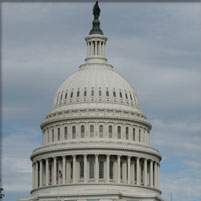 Domain takedowns: With law-enforcement recently taking down domains that they assert are engaged in peer-to-peer sharing [1. …and they certainly may be doing illegal peer-to-peer sharing among other things, I don’t argue that.] and with UK agencies perhaps looking for the power to seize domains [2. in a proposal from Nominet, which is registrar for the .uk top-level domain.] associated with criminal activity, I see some possible parallels. First, note that all that might be required for takedowns is a request from law-enforcement, and that the domain owner doesn’t necessarily know why the domain is down—it just is taken down. But wait—I see parallels elsewhere…
Domain takedowns: With law-enforcement recently taking down domains that they assert are engaged in peer-to-peer sharing [1. …and they certainly may be doing illegal peer-to-peer sharing among other things, I don’t argue that.] and with UK agencies perhaps looking for the power to seize domains [2. in a proposal from Nominet, which is registrar for the .uk top-level domain.] associated with criminal activity, I see some possible parallels. First, note that all that might be required for takedowns is a request from law-enforcement, and that the domain owner doesn’t necessarily know why the domain is down—it just is taken down. But wait—I see parallels elsewhere…
TSA: Recently the TSA in the US has begun using backscatter x-ray and microwave “naked scanners” to examine all passengers before they take flights (see TSA Encounter at SAN that sparked the“don’t touch my junk” outcry and the statement “He said that I gave up a lot of rights when I bought my ticket.”), and so officials assert that although the US constitution in its fourth amendment guarantees the right to be “secure in our persons… against unreasonable searches and seizures”, there is no right to fly and if a citizen wishes not to be searched they must travel in some other way.
Network Neutrality: I see similar arguments from ISPs which wish to prioritize traffic based on economic and other concerns rather than observe the “net neutrality” rules that have served the Internet well for decades, which could mean that only the web sites that choose to pay higher prices would have their traffic carried quickly and efficiently, and the rest of us might be left in a second tier (or lower) where our sites might be carried more slowly, or not at all.[3. Google and Verizon argued essentially that they should be allowed to surpass the current Internet, develop channels of their own, and charge or do whatever they wish with those.] The argument would be that online expression is a privilege and not a right.
Email blocklists: You’re probably not aware that in attempting to reduce the flow of spam email, ISPs typically “blocklist” servers that they judge to be contributing to the problem. This process entraps many little email servers that are innocent but happen to be housed in hosting facilities where spammers are doing their dark deeds. And getting off the blocklists, or getting removed by ISPs who are blocking receipt of your email, is a difficult process that can take days. Getting onto the list can be by chance, but getting off can be a nightmare. Again, it’s not your right to have email, it’s a privilege.
So what’s the similarity I see in all of these? It’s that technologists, and I include myself in the group (and would also say that the framers of the US Constitution were also technologists in a sense who were inventing a new form of government), frequently develop systems that assume free flow of information, and may even guarantee it as a right. But, as those systems mature and others see the potential for economic gain (which usually implies restricting the flow of something or other), what has been seen as a right frequently turns into a privilege that you have to pay for.
Leave a Reply